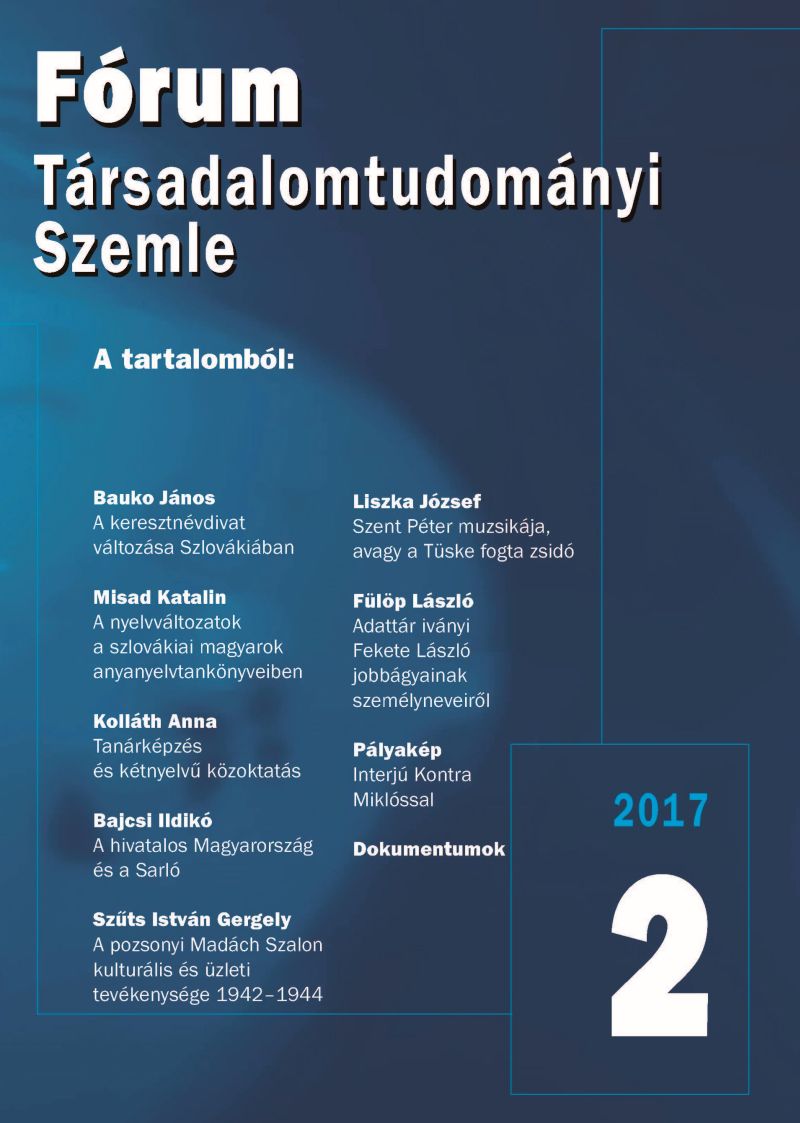A keresztnévdivat változása Szlovákiában
Changing of Forename Fashion in Slovakia
Author(s): Ján BaukoSubject(s): Language studies, Sociolinguistics
Published by: Fórum Kisebbségkutató Intézet
Keywords: forename; official personal name; bilingualism; Slovakia Hungarians; mother tongue name planning; Hungarian-Slovak forename dictionary;
Summary/Abstract: Following the 1989 change of regime, there were more factors that influenced the forename giving in Slovakia. After opening the state borders the rise of migration, both emigration and immigration has resulted in a dynamic change of given name stock that has mainly broadened by foreign language name elements. While before the change of regime, the loadedness of a name was bigger, strivings towards having more unique and rare names registered have been more powerful nowadays. Due to interethnic relationships the name stock is being enriched by given names of various foreign origins. There are also generational differences in name bearing: the younger generation uses many of those given names that are absent from the older generation’s name stock. The number of the registered given name variants is increasing; the foreign spelled names are also frequent. Movie and TV series characters often serve as inspiration for naming. More and more nicknames become registerable given names. Giving two forenames has become a new fashion in Slovakia in recent years. The members of minorities have a wider choice of names since they might choose from the minority as well as majority name stock. Among the members of the minorities, the name registration in mother tongue is increasing. Minority name planning is one of the fields of applied onomastics, the tasks of which include propagation of the mother tongue name usage. The minority name planning deals primarily with the official use of personal, geographical and institution names. Publishing a Hungarian–Slovak forename dictionary (under preparation by me) maybe one of the methods for the minority (mother tongue) name planning in Slovakia, which could serve as a guideline for mother tongue name planning, for registering the personal names of Hungarians living in Slovakia in their mother tongue. The study deals with the laws of the Slovak Republic concerning personal names, the name registers and name catalogues in Slovakia and Hungary used at registering, the importance of name planning as well as the features of the planned forename dictionary and the structures of its entries.
Journal: Fórum Társadalomtudományi Szemle
- Issue Year: XIX/2017
- Issue No: 2
- Page Range: 3-34
- Page Count: 32
- Language: Hungarian

